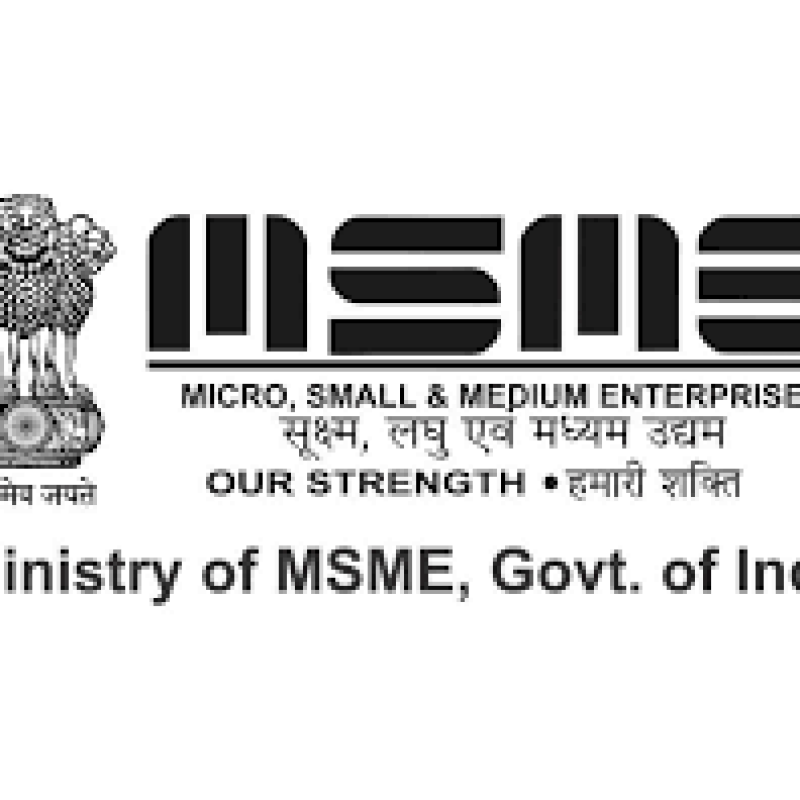Expanding your business across states can offer tremendous growth opportunities. This blog delves into the key considerations and compliance requirements that businesses must navigate to ensure successful multi-state expansion. Learn about the essential steps and regulations that can help you avoid common pitfalls and streamline your expansion process
By Guruvind TanwerJul 16, 20248 mins read
Explore the concept of Input Tax Credit (ITC) in the Goods and Services Tax (GST) system, and learn how businesses can benefit by reducing their tax liabilities through this essential mechanism.
Discover how MSMEs (Micro, Small, and Medium Enterprises) are the backbone of India's economy, driving growth, innovation, and employment, while overcoming challenges with government support
"Mastering GST Return Filing: Your Complete Guide to Compliance" is your go-to resource for understanding the intricacies of GST return filing. Whether you're a small business owner or a seasoned entrepreneur, this comprehensive guide covers everything you need to know to navigate GST compliance with confidence. From understanding GST concepts to filing procedures and compliance tips.
This blog post is your one-stop guide! We break down recent updates impacting D2C food sales, insolvency processes, taxes, and financial compliance. Plus, we answer FAQs and provide resources to help you stay informed and compliant. Don't get caught off guard - ensure your business thrives in the dynamic Indian market
Employee welfare and statutory compliance are crucial aspects of running a business in India, particularly concerning ESIC (Employees' State Insurance Corporation) and PF (Provident Fund) registrations. These registrations ensure that businesses meet legal obligations towards their employees while maintaining regulatory compliance. Let's explore when and why ESIC and PF registrations are mandatory
GST is a comprehensive, multi-stage, destination-based tax levied on every value addition. It is designed to eliminate the cascading effect of taxes and create a unified national market.
Directors play a pivotal role in shaping a company's destiny. However, there may come a time when a director wishes to step down from their position due to disputes or personal reasons. In India, resigning as a director from a company is a well-established process, but it can become complex if the other directors or co-founders are not accepting your resignation. In such cases, understanding your
How to Surrender DIN (Director Identification Number)
In this article, we will discuss the Disadvantages of a Private Limited Company.
In this article, we will discuss the Disadvantages of an One Person Company.
In this article, we will discuss the disadvantages of a Limited Liability Partnership.
ESIC (Employees State Insurance Corporation)
ESIC is a comprehensive social security and health insurance scheme managed by the Employees' State Insurance Corporation, under the Ministry of Labour and Employment. It provides financial support and medical benefits to employees and their dependents during times of need, such as sickness, maternity, disablement, or death due to employment-related injuries.
Why ESIC Registration is Mandatory:
ESIC registration becomes mandatory for businesses under the following criteria:
Employee Threshold: Businesses with 10 or more employees (in some states, this threshold may vary to 20 employees) must register under ESIC. This requirement applies to employees earning ₹21,000 or less per month.
Legal Obligation: Employers are required to register under the ESIC Act within 15 days of reaching the eligible employee threshold. Non-compliance can lead to penalties and legal repercussions.
Employee Benefits: Registered employees gain access to a range of benefits, including medical care, sickness benefits, maternity benefits, and more. ESIC ensures that employees receive necessary support during times of illness or injury, thereby enhancing their welfare and productivity.
PF (Provident Fund)
PF is a savings scheme aimed at providing financial security to employees after their retirement. Managed by the Employees' Provident Fund Organisation (EPFO), PF contributions are mandatory for eligible employees and employers.
Why PF Registration is Mandatory:
PF registration is compulsory for businesses under the following criteria:
Employee Threshold: Employers with 20 or more employees are required to register for PF contributions. This applies to employees earning up to ₹15,000 per month, though higher-earning employees can voluntarily opt for PF.
Contribution Requirements: Both the employer and employee contribute a fixed percentage (currently 12% each) of the employee's basic salary, dearness allowance, and retaining allowance to the PF account every month. These contributions accumulate over time to provide a lump sum amount to the employee upon retirement or resignation.
Legal Compliance: Employers must register with the EPFO and obtain a PF registration number. They are also required to file monthly PF returns and maintain accurate records of contributions and withdrawals. Compliance ensures transparency and accountability in managing employees' retirement savings.
Benefits of Compliance:
Complying with ESIC and PF registrations offers several benefits to businesses:
Legal Compliance: Ensures adherence to labor laws and regulatory requirements, avoiding penalties and legal issues.
Employee Welfare: Demonstrates commitment to employee well-being by providing access to healthcare and retirement benefits.
Organizational Credibility: Enhances the reputation of the business as a responsible employer, fostering a positive work environment and employee loyalty.
Conclusion
ESIC and PF registrations are not just legal obligations but essential components of responsible business operations in India. By registering under ESIC and PF, businesses uphold their commitment to employee welfare and statutory compliance, contributing to a productive and harmonious workplace environment.
For businesses navigating the complexities of ESIC and PF registrations, consulting with HR professionals or legal experts specializing in labor laws can provide invaluable guidance. Understanding and fulfilling these obligations not only mitigate risks but also empower businesses to focus on their core objectives while nurturing a supportive and compliant workplace culture.
For more queries and updates join our Whatsapp community


















